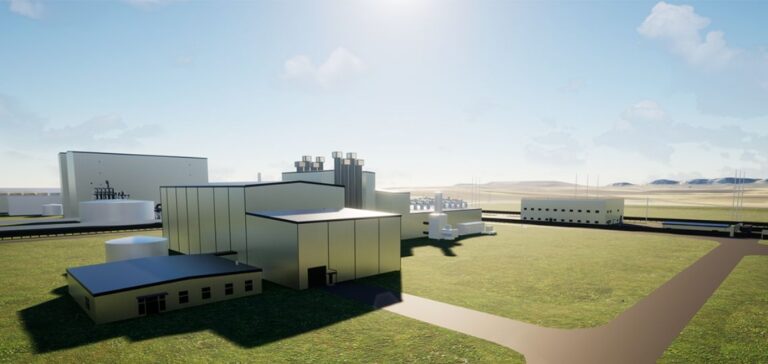European companies continue their efforts to develop advanced nuclear technologies, with particular focus on small modular reactors (SMRs) and fast neutron reactors. Two major partnerships have recently been formed, each with clear goals to enhance the performance and safety of next-generation reactors.
Hexana-Tractebel Partnership: Advancing Sodium-Cooled Reactors
Hexana, a French company developing nuclear reactors, has signed a strategic partnership with Belgian engineering firm Tractebel to design its sodium-cooled fast neutron reactor. This small modular reactor (SMR), with a thermal capacity of 400 MWt per unit, could provide a flexible alternative to gas-fired power plants, producing both electricity and heat for energy-intensive industries.
Under this agreement, Tractebel will carry out the conceptual design for the civil engineering of the nuclear island buildings and the nuclear handling systems, which are critical for maintaining large components. These studies will serve as the foundation for Hexana’s safety file, which will be submitted to France’s Nuclear Safety and Radiation Protection Authority (ASN) for licensing. Hexana views this agreement as an initial step towards broader collaboration, highlighting the significance of this phase in the planning of the reactor’s design.
Blykalla and Newcleo: Collaboration on Lead-Cooled Reactors
Meanwhile, Blykalla, a spin-off from the KTH Royal Institute of Technology in Stockholm, and Newcleo, based in Paris, have announced a partnership for the development of lead-cooled fast reactors (LFRs). This collaboration aims to optimize the materials used in these reactors by sharing research results and testing data. Both companies, each specializing in different aspects of LFR technology, will pool their research facilities and expert teams to improve the durability and reliability of next-generation reactors.
The partnership will also help optimize supply chains for SMR reactors, in line with the goals of the EU SMR Alliance. This initiative will contribute to fostering cross-border knowledge exchange and streamlining licensing processes for each party’s reactor technologies.
Aspirations and Outlook
These two partnerships are part of a broader effort to meet global energy challenges. The development of fast neutron reactors and modular reactors, construction of which is expected to begin in the coming years, is a key element of the strategy to achieve decarbonization in industrial and energy sectors.
Hexana, Tractebel, Blykalla, and Newcleo are positioning themselves as key players in the implementation of tomorrow’s nuclear energy solutions. These projects could not only diversify energy supply but also reduce reliance on fossil fuels, contributing to a sustainable energy transition.






















